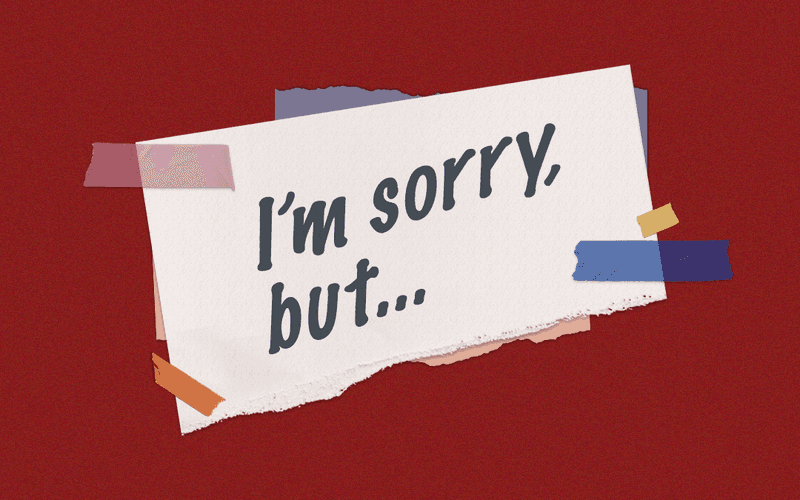18 Signs You’re the Toxic One in the Relationship
Let’s get honest—brutally honest. It’s so easy to point fingers, analyze every little flaw in our partner, and shake our heads at all the ways they fall short. But here’s the uncomfortable truth: sometimes, you’re the one causing the drama.
Not because you’re some kind of villain or that you don’t care. But because those old wounds, unchecked feelings, and ego-fueled reflexes sneak in and quietly sabotage the thing you truly want to protect.
Real talk: recognizing your own messiness isn’t about shame. It’s about setting yourself free with a little truth, a lot of awareness, and the power to actually do better.
If you’ve ever wondered if maybe, just maybe, you’re the one bringing a side of toxic to the love table, read on. Your wake-up call (with a little humor and plenty of heart) is here.
1. You Always Have to Be Right

Winning every argument feels almost necessary. You don’t just want resolution—you want validation, as if losing means something about who you are. It turns disagreements into war zones, making peace impossible.
Every little thing becomes a hill worth dying on. It’s exhausting—for you and them. Suddenly, ‘compromise’ is a dirty word, and the whole relationship feels like a constant debate club, minus the fun trophies.
Have you ever caught yourself researching ‘receipts’ to prove a point from three months ago? That’s a clue. Nobody wants to be up against a human encyclopedia of past mistakes. Sometimes, letting go of being right is the real win.
2. You Punish With Silence

Silence isn’t golden when it’s used as punishment. Pulling away, withholding affection, or simply refusing to talk can sting more than yelling ever could. It’s not just about cooling off—it’s about control, plain and simple.
It’s like you’re holding the relationship hostage until you feel better. Your partner is left guessing, walking on eggshells, and wondering what invisible line they crossed this time. Spoiler: That’s not real communication, it’s emotional ransom.
If you’ve ever felt a weird sense of power when you go silent, that’s your warning sign. Real love needs words—even if they’re messy or hard to say. The silent treatment only builds walls where there should be bridges.
3. You Keep Score of Every Mistake

Some people collect stamps; you collect your partner’s mistakes. Every slip-up, every forgotten birthday, every small argument gets filed away in your mind for future use.
Instead of letting go, you pull out that mental scorecard whenever things get heated. Suddenly, a tiny disagreement about laundry turns into a trial for every wrong they’ve ever committed. It’s not fair, and it never helps anything heal.
Relationships aren’t meant to be competitions. If you’re always keeping score, it means forgiveness is just a word you say, not something you give. Newsflash: nobody wins when the scoreboard is the centerpiece of your love life.
4. You Use Guilt as a Manipulation Tool

“After everything I do for you…” Sound familiar? If you find yourself using guilt to get your way, you’re not nurturing love—you’re using emotional blackmail.
Guilt trips might get you what you want in the short term, but they leave your partner feeling drained and resentful. Instead of honest conversation, you’re building a dynamic where love feels like a transaction.
Sometimes, it’s sneaky: a sigh, a story about how you sacrifice so much, or a pointed look. But the result is always the same: control disguised as care. True connection doesn’t need guilt to survive.
5. You Twist Their Words to Make Yourself the Victim

Ever caught yourself flipping the script? Maybe they try to tell you how they feel, and you instantly turn it around, so suddenly you’re the one who’s hurt. It’s a classic move—putting yourself front and center, even when the issue isn’t really about you.
It doesn’t mean you’re awful—it just means you’re human and maybe a tad defensive. But making it all about your pain shuts their voice down. It leaves no room for their feelings, only yours.
If your go-to response is “But what about how I feel?” every time, it’s time to pause. Sometimes, stepping out of the spotlight is the most loving thing you can do.
6. You Don’t Take Accountability—You Redirect It

“I’m sorry you feel that way.” Sound familiar? It’s the classic non-apology—one that puts the blame right back in their lap. You might even blame them for your reaction, spinning every issue into their fault.
It’s a sneaky way to dodge real responsibility. Instead of owning up, you redirect, rationalize, or minimize until the real problem gets lost. That’s not growth—it’s sidestepping the hard work.
Honesty hurts sometimes, but it heals more than a hundred cleverly worded excuses. True accountability means facing your mess, not sweeping it into someone else’s corner.
7. You Get Defensive Instead of Curious

Feedback feels like a gut punch, right? The minute your partner brings up an issue, you’re ready with a retort, a jab, or a laundry list of their flaws. Vulnerability? Forget it—you’d rather armor up.
Every conversation turns into a battle for self-protection, not understanding. You miss what they’re really trying to say because you’re too busy guarding your own feelings.
Here’s the secret: curiosity diffuses conflict. Defensive walls keep you ‘safe’ but lonely. Real connection means being brave enough to listen, even when it stings.
8. You Make Jokes That Cut Too Deep

Sarcasm and sharp wit can be fun—until they turn into weapons. Sometimes, a joke at your partner’s expense lands way too hard, leaving wounds instead of giggles.
Maybe you shrug it off with “I was only kidding,” but the sting lingers. When laughter becomes a shield for criticism, it’s no longer harmless fun.
If you notice your partner quieting down, shrinking, or avoiding playful banter, it’s a sign your ‘jokes’ hurt more than they heal. Humor should bring you closer, not cut someone down.
9. You Criticize More Than You Compliment

Nitpicking is like death by a thousand paper cuts. You notice every little mistake, every annoying quirk, and you’re not shy about pointing them out—over and over.
Compliments? Those are rare. Your partner starts to wonder if they can ever get it right. The criticism piles up until all they hear is what they’re doing wrong.
A relationship starved of praise can’t flourish. Up the ratio of kind words to corrections, and watch how the mood shifts. You might be surprised at how much better things feel.
10. You Expect Them to Read Your Mind

Hint-dropping is not a language everyone speaks. You expect your partner to just ‘get it’—to know what you want, what you’re feeling, and what sets you off, without ever saying a word.
When they miss those hidden signals, you go passive-aggressive, pouty, or straight-up annoyed. Suddenly, they’re lost in a maze with no map, and you’re mad they can’t find the exit.
Communication shouldn’t feel like a psychic test. Laying it out clearly is a sign of care, not weakness. Give your partner the cheat sheet instead of making them guess.
11. You Disrespect Their Boundaries

Some boundaries are made to keep people safe—not push them away. If your partner asks for space and you flood their phone with texts anyway, that’s not love, it’s entitlement.
Ignoring their wishes, bringing up topics you promised to avoid, or bulldozing over their comfort zones leaves them feeling violated—not cherished.
Healthy love honors boundaries, even when you don’t like them. If ‘no’ feels personal, it’s time to rethink what respect looks like.
12. You Threaten to Leave During Fights

Throwing out breakup threats like confetti in the middle of a fight? That’s a power play, not a problem-solver. It creates fear and keeps your partner off balance, never sure if you’ll actually walk out.
It’s tempting in the heat of the moment, but the emotional fallout lasts way longer than the argument. Your partner is left questioning the whole relationship every time things get hard.
If you find yourself reaching for the nuclear option whenever you’re upset, ask yourself why. Genuine connection doesn’t need threats to get attention.
13. You Spy, Stalk, or Snooze-Through Their Privacy

Checking phones, scrolling through social media, and tracking locations aren’t signs of love—they’re signals of mistrust. If you haven’t been betrayed but still can’t resist snooping, that’s about you, not them.
Invading privacy chips away at the trust you claim to value. Your partner ends up feeling watched, not loved.
Real love breathes without surveillance. When in doubt, ask yourself: Do I want a partner, or a project to monitor?
14. You Use Intimacy, Affection, or Attention as a Weapon

Withholding hugs, kisses, or attention to make a point is manipulation wearing a pretty mask. Intimacy should never be a reward or a punishment—you’re not training a puppy.
When you dangle affection as leverage, the relationship starts to feel transactional, not tender. It breeds resentment and erodes real closeness.
Ask yourself: Are you giving love freely, or using it as currency to get your way? Healthy love flows without strings attached.
15. You Gaslight Without Realizing It

“You’re overreacting.” “That never happened.” These little phrases, meant to ‘calm things down,’ can actually be gaslighting in disguise. You might not intend harm, but minimizing your partner’s feelings makes them question their own reality.
Instead of listening, you rewrite the story. Suddenly, they’re the one who’s too sensitive, too dramatic, too everything.
Gaslighting doesn’t always wear a villain cape. Sometimes, it hides behind ‘helpfulness’ or ‘logic.’ But if your partner starts doubting themselves, it’s time to check your words.
16. You Struggle to Apologize Without Justifying

Apologies shouldn’t sound like a courtroom defense. “I’m sorry, but…” or “I only did that because…” takes away from the actual apology and makes it all about you.
It’s hard to admit when you’re wrong—nobody likes feeling exposed. But tacking on justifications robs the other person of real closure.
A true apology means putting your ego aside, no strings attached. If you catch yourself always needing to explain, try just saying ‘I’m sorry’—and let it stand.
17. You Expect Them to Be Your Therapist, Cheerleader, and Emotional Dumping Ground—24/7

It’s comforting to lean on your partner, but when every vent, rant, or emotional crisis lands in their lap, it becomes too much. You expect them to be everything—therapist, cheerleader, problem-solver—and it’s exhausting.
Soon, the relationship feels more like one-sided emotional labor than a partnership. Your partner might start pulling away, not because they don’t care, but because they’re running on empty.
Support is a two-way street. Sometimes, calling a friend or a professional is the most loving thing you can do for both of you.
18. You Know They’re Walking on Eggshells… And Part of You Likes It

Control can be a sneaky thrill. If you notice your partner watches their words, tiptoes around your moods, and you feel a twisted sense of power from it, that’s a red flag.
Maybe you think it means they love you more, or it reassures you that you’re in charge. But it’s not love—it’s fear keeping things together.
Real intimacy grows where people feel safe, not scared. If you recognize this in yourself, that’s the sign to break the cycle, not double down.







